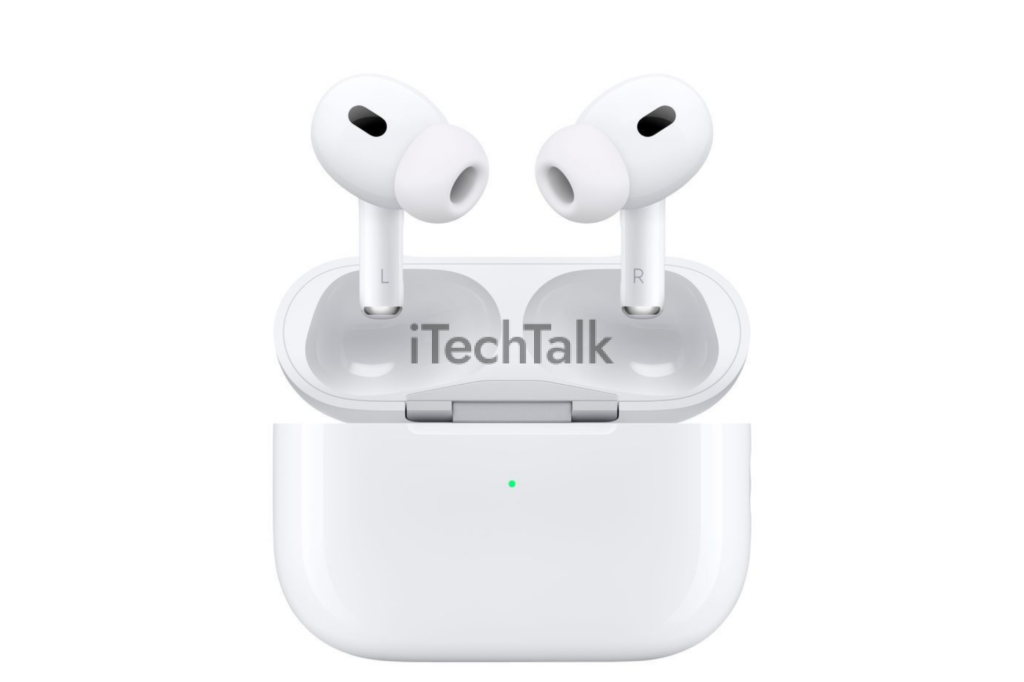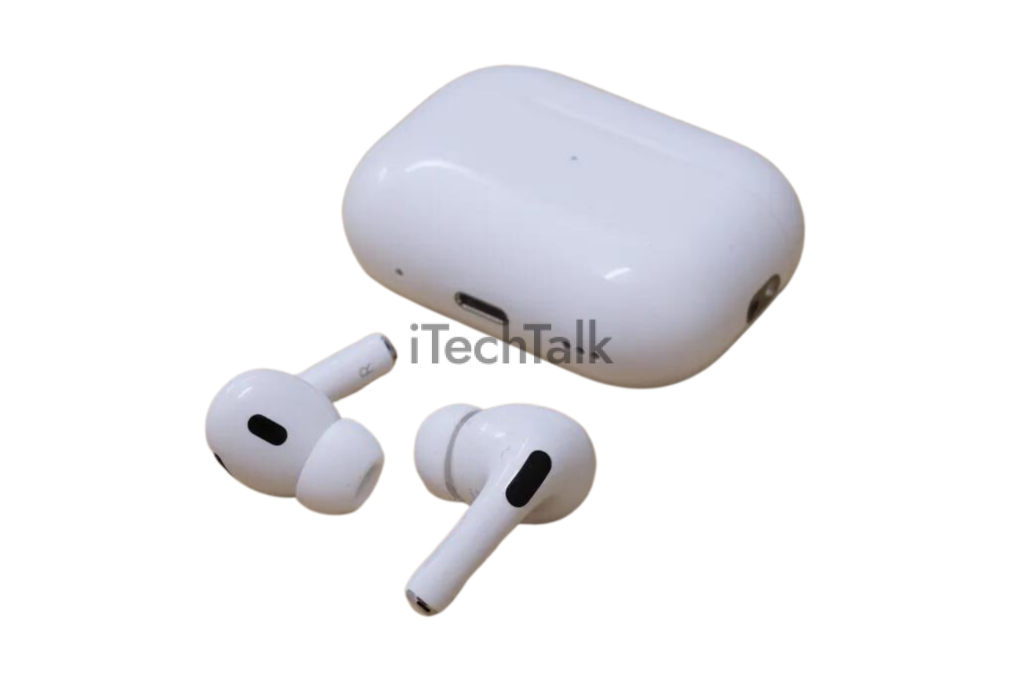Wireless earbuds have become a must-have accessory for music lovers and tech enthusiasts as technology evolves.
Apple’s AirPods, in particular, have revolutionized how we listen to audio by providing
unparalleled convenience and style without sacrificing sound quality.
In this blog post, we will dive into the fascinating history of these iconic earbuds, exploring when AirPods Come Out onto the scene and how they’ve evolved since their debut.
Quick Summary
- Apple announced the AirPods in September 2016, with a delayed release from October to December due to technical issues.
- The AirPods have evolved significantly since their debut, with advancements like biometric sensors and noise-cancellation being rumoured for future generations.
- The popularity of AirPods revolutionized the wireless earbud market and influenced competitors, leading many companies to release their versions of true wireless earbuds.
The History Of AirPods Come Out
In 2011, AirPods were originally mentioned in a patent application before being officially announced by
Apple on September 7, 2016, with a delayed release date.
Announcement And Delayed Release
The buzz around Apple’s AirPods started long before their official announcement. In 2011,
whispers of a new wireless headphone product from the tech giant circulated among audio enthusiasts and Apple fans.
Excitement quickly followed the announcement as people eagerly awaited their chance to get this groundbreaking technology.
But enthusiasm soon turned to impatience when Apple experienced
product launch delays.
Originally slated for release in October 2016, customers waited with bated breath as
technical issues pushed back launch dates further into December.
Official Release Date
As an avid Apple fan, I remember the excitement surrounding the official release of AirPods like it was yesterday. After several delays, Apple finally announced that the
first generation AirPods would be available on December 13, 2016.
It was a
highly anticipated moment for consumers who sought to forever embrace wireless earbuds and ditched tangled cords.
The official release date coincided with the holiday season, further fueling its popularity and demand among shoppers looking for audio accessories that seamlessly connect with their mobile devices.
Initial Reception And Popularity
When the first generation AirPods were released on December 13, 2016, they were met with
mixed reactions. While some praised their convenience and quality, others criticized their high price tag and design.
By early 2017, it was clear that Apple had a hit on its hands. Customers raved about their
seamless connection to other Apple devices and effortlessly switching between music playback and
phone calls.
Despite some initial scepticism from audiophiles who felt that the sound quality was not up to par with wired headphones at similar price points, many users found that AirPods provided a satisfying listening experience.
As time passed, more
competitors tried to mimic Apple’s success by releasing their versions of wireless earbuds.
Evolution Of AirPods
Apple released the
second generation AirPods in March 2019, which featured an improved H1 chip that allowed for faster connectivity and hands-free “Hey Siri” voice commands.
Second Generation
I personally love my
second-generation AirPods, which were
released in March 2019.

These earbuds feature Apple’s new H1 chip, providing a faster and more stable wireless connection with
up to 50% more talk time than the original AirPods.
The release of the AirPods’ second generation was another significant step forward in headphone technology for Apple, improving upon its already impressive first-generation product.
AirPods Pro
As mentioned earlier, the
AirPods Pro was
introduced in September 2022 as an upgrade to the second-generation AirPods.

These premium wireless earbuds boast new features such as
Active Noise Cancellation and a
customizable fit with three sizes of silicone ear tips.
One standout feature of the AirPods Pro is their
transparency mode, which allows users to hear their surroundings while still enjoying their music or taking phone calls.
This can be especially useful when walking or jogging outside, allowing for awareness of hazards like cars or bicycles approaching from behind.
Third Generation
The AirPods have evolved tremendously since they first hit the market in 2016. Apple released the third generation of AirPods on October 18, 2021.
These earbuds have exciting features and improvements, such as
longer battery life and improved sound quality.
The design of the third-generation AirPods is slightly different from their predecessors, with shorter stems and a more rounded look.
With the release of each new generation of AirPods, Apple has continually pushed the boundaries in wireless headphone technology.
The third-gen model exemplifies this trend by offering consumers an upgraded user experience through advanced features like
Spatial Audio playback for immersive surround sound and Adaptive EQ to personalize music listening experience according to individual preferences based on audiometric test results.
AirPods Max
Regarding high-end wireless headphones, the
AirPods Max takes the cake. Introduced by Apple in December 2020, the over-ear headphones feature a sleek design and impressive audio quality.
The headphones use computational audio technology to deliver immersive sound and active noise cancellation for an uninterrupted listening experience.
Additionally, the AirPods Max boasts
up to 20 hours of battery life and includes convenient features like automatic pause when taken off and seamless switching between devices connected to your iCloud account.
Overall, the AirPods Max are just another example of Apple’s commitment to innovation in headphone technology.
Impact Of AirPods On The Market
AirPods have revolutionized the wireless headphone market with their seamless audio connectivity and hands-free capabilities, influencing many competitors to follow suit; read on to discover more about AirPods’ impact on the market.
Revolutionizing Wireless Headphones
AirPods have
revolutionized wireless headphones since their release. The convenience of earbuds without cords has transformed how people use audio accessories on the go.
The original AirPods were one of the first
truly wireless earbuds on the market, and they quickly became a must-have accessory for Apple users.
With each new generation of AirPods, Apple has continued to push the boundaries of headphone technology with features like
noise cancellation and
improved battery life.
Other tech companies have followed suit, releasing their versions of true wireless earbuds to keep up with Apple’s innovation.
Influence On Competitors
As wireless earbuds became popular among consumers, many companies tried to enter the market. However, Apple’s AirPods have set the standard for quality and convenience that competitors strive to match.
Even before their release, rumours of Apple’s entry into the wireless earbud market had established high expectations.
Despite some initial scepticism about their design and functionality, AirPods quickly became a commercial hit, prompting other headphone manufacturers such as Samsung and Jabra to release similar products like the Galaxy Buds Pro and Elite 85t, respectively, with similar features, including noise cancellation.
Additionally, many smartphone companies began
phasing out headphone jacks in favour of Bluetooth technology after experiencing how successful Apple was with its shift towards wireless audio connections.
The Future Of AirPods
Apple is expected to continue advancing the technology of AirPods, with rumours of features such as biometric sensors, noise-cancellation improvements, and even augmented reality capabilities in future iterations.
Speculations For Future Advancements
As an avid user and fan of AirPods, I am always curious about what exciting new features Apple may add to future generations.
While Apple is known for staying tight-lipped about their upcoming products, there are still several speculations and rumours about potential advancements in the AirPods line.
Here are a few:
- Biometric sensors: There have been whispers of biometric sensors being added to future versions of AirPods. These sensors could track health metrics like heart rate, body temperature, and even hydration levels.
- Noise-cancellation improvements: The second generation of AirPods Pro already featured impressive noise-cancelling capabilities. However, rumour has it that Apple is working on improving this further with adaptive noise cancellation. This would allow the AirPods to adjust noise-cancellation levels based on your environment seamlessly.
- Longer battery life: One of the most significant complaints about all wireless headphones is battery life. Still, some insiders suggest that Apple may work on substantial improvements in this area by implementing more power-efficient chips.
- Waterproofing: While the current generation of AirPods is water-resistant, many users still fear getting them wet. Several reports indicate that Apple is developing waterproofing technology for future models allowing users to use their earbuds for activities like swimming or showering.
- More customization options: Finally, some speculate that Apple may expand their personalization features beyond just being able to rename your AirPods and change the touch controls. Some even suggest that they could start offering customizable colours or designs.
While none of these potential advancements has been confirmed yet by Apple, it’s exciting to think about the future of audio technology!
Apple’s Contribution To Wireless Earbud Technology
I remember when Apple first announced AirPods in 2016, and I was blown away by the innovative technology they brought to wireless earbuds. Since then, they have become a staple for on-the-go music lovers everywhere.
Not only did Apple revolutionize wireless headphones, but they also set the standard for competitors looking to enter the market.
The popularity of AirPods even sparked a trend in fashion accessories where people started wearing them as a status symbol.
With each new generation of AirPods comes additional
improvements in audio quality, battery life, and
noise cancellation technology.
Conclusion.
Looking back at the history of AirPods, it is clear that these wireless earbuds revolutionized headphone technology and had a significant impact on the market.
Since its release in 2016, AirPods have become synonymous with Bluetooth headphones and have
influenced competitors to create their versions.
With the introduction of newer generations and models, such as the AirPods Pro and Max,
Apple continues to push boundaries in audio innovation.
As an SEO expert and high-end copywriter who has worked with audio accessories before, I can attest that Apple’s contribution to wireless earbud technology has set a standard for what consumers expect from mobile accessories today.
 These earbuds feature Apple’s new H1 chip, providing a faster and more stable wireless connection with up to 50% more talk time than the original AirPods.
The release of the AirPods’ second generation was another significant step forward in headphone technology for Apple, improving upon its already impressive first-generation product.
These earbuds feature Apple’s new H1 chip, providing a faster and more stable wireless connection with up to 50% more talk time than the original AirPods.
The release of the AirPods’ second generation was another significant step forward in headphone technology for Apple, improving upon its already impressive first-generation product.
 These premium wireless earbuds boast new features such as Active Noise Cancellation and a customizable fit with three sizes of silicone ear tips.
One standout feature of the AirPods Pro is their transparency mode, which allows users to hear their surroundings while still enjoying their music or taking phone calls.
This can be especially useful when walking or jogging outside, allowing for awareness of hazards like cars or bicycles approaching from behind.
These premium wireless earbuds boast new features such as Active Noise Cancellation and a customizable fit with three sizes of silicone ear tips.
One standout feature of the AirPods Pro is their transparency mode, which allows users to hear their surroundings while still enjoying their music or taking phone calls.
This can be especially useful when walking or jogging outside, allowing for awareness of hazards like cars or bicycles approaching from behind.